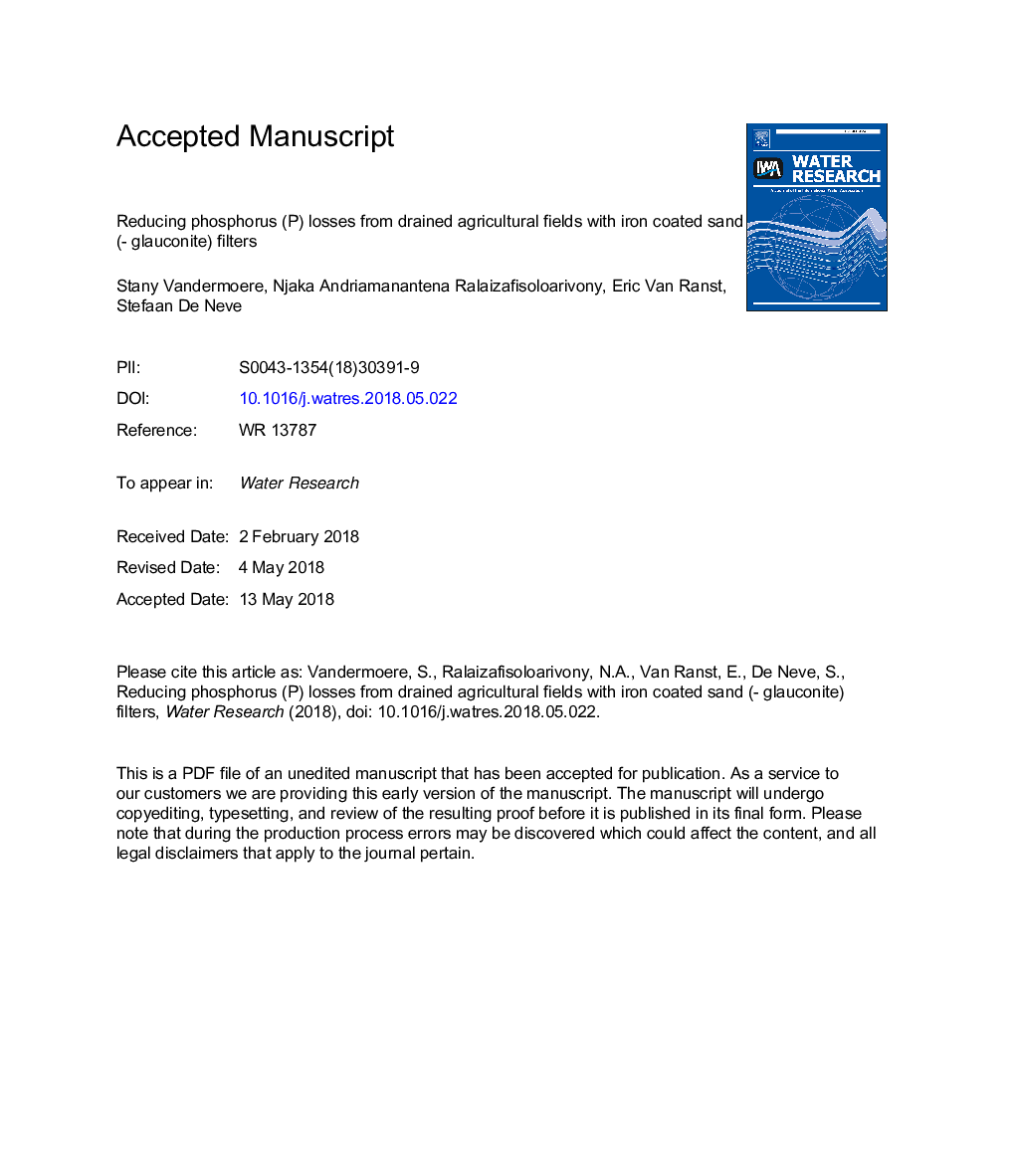| Article ID | Journal | Published Year | Pages | File Type |
|---|---|---|---|---|
| 8873790 | Water Research | 2018 | 45 Pages |
Abstract
In north-west Europe, agricultural diffuse P losses are a major cause of eutrophication problems in surface waters. Given that the Water Framework Directive (WFD) demands fast water quality improvements and most of the actual P mitigation strategies tend to work on the long run, new short-term mitigation measures are urgently needed. We here report on the entire process of developing small scale field filters to remove P at the end of tile drains, starting from the screening of potential P sorbing materials (PSM): iron coated sand (ICS), acid pre-treated natural minerals (biotite, glauconite and olivine) and bauxite. Initial batch (ad)sorption experiments revealed following order in both, P sorption capacity and speed: ICSâ¯>â¯bauxiteâ¯>â¯glauconiteâ¯>â¯olivineâ¯=â¯biotite. Because of the presence of significant amounts of lead and/or nickel, we excluded bauxite and olivine from further experiments. Subsequent lab scale flow through systems were conducted with P filters containing mixtures of ICS and glauconite (100/0, 90/10, 80/20, 70/30 and 60/40%, respectively, on weight basis). We found a significant relationship between Ksat and the filter mixtures particle size distribution and bulk density, and a significant effect of the filter mixture composition on P removal efficiency and stability of Ksat. During the 10 week field trials, the pure ICS filters were capable of processing all drainage discharge rates (up to 6â¯m3 dayâ1) with a P removal efficiency of â¥74%. The 90/10 ICS/glauconite filters could process up to 4â¯m3 water dayâ1 with a P removal efficiency of 57%. As saturated ICS filters can easily be replaced and recycled for other applications, this is a promising sustainable technique to drastically cut back diffuse P losses and to tremendously improve surface water quality in the short term.
Keywords
Related Topics
Physical Sciences and Engineering
Earth and Planetary Sciences
Earth-Surface Processes
Authors
Stany Vandermoere, Njaka Andriamanantena Ralaizafisoloarivony, Eric Van Ranst, Stefaan De Neve,
